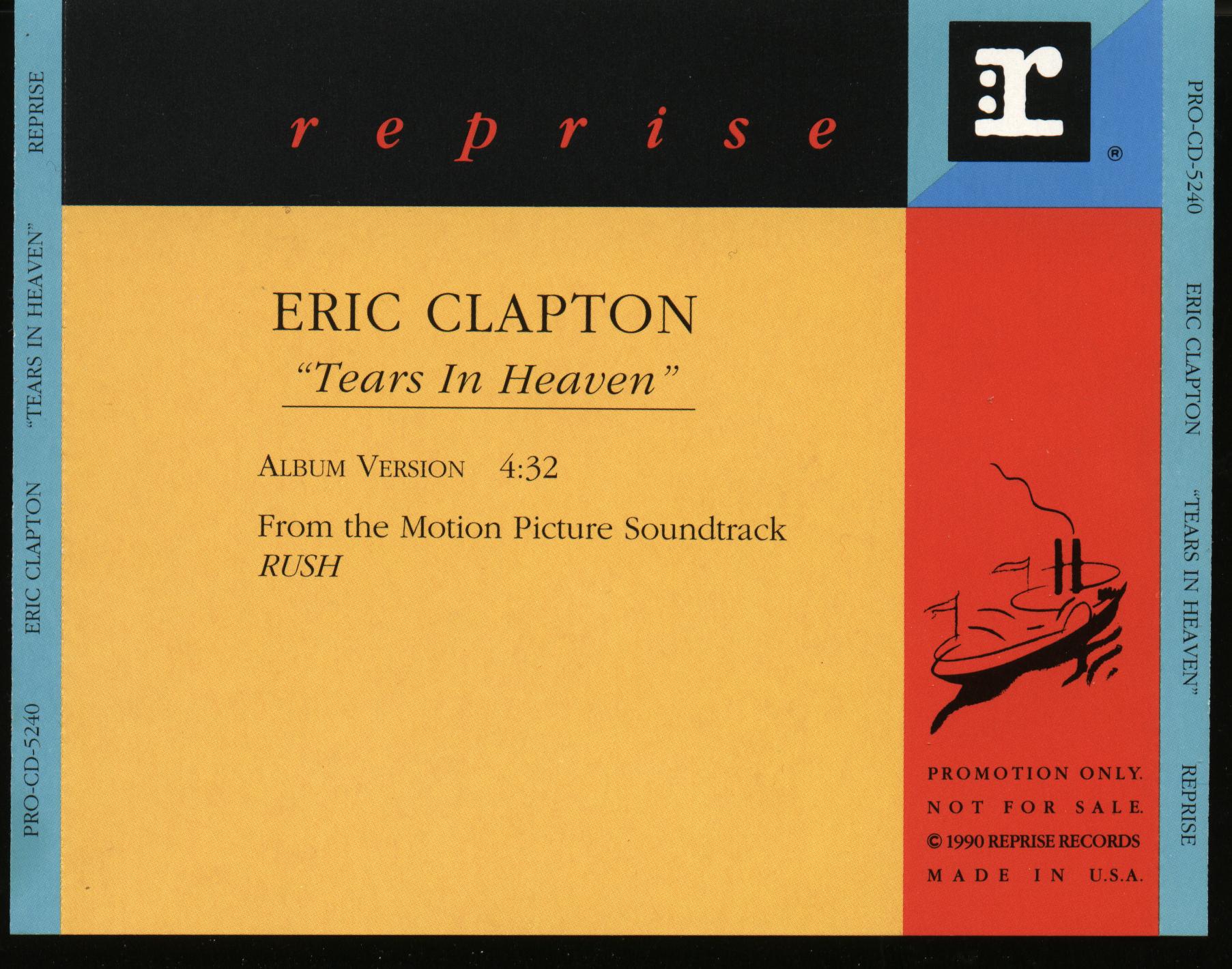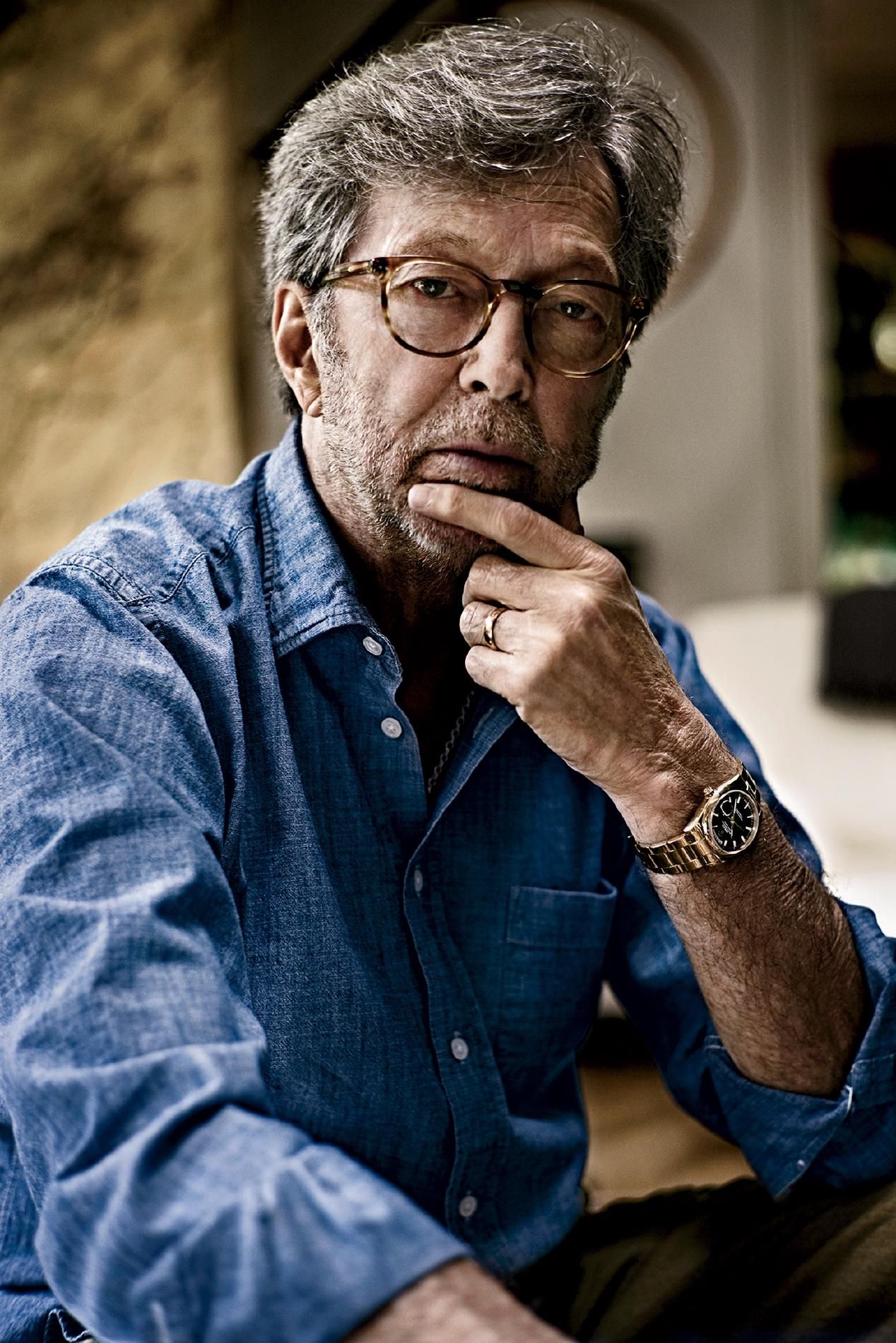Eric Clapton See You In Heaven: A Tribute To A Musical Legend
Eric Clapton, a name synonymous with soulful guitar riffs and heartfelt lyrics, has left an indelible mark on the music world. His iconic track "See You in Heaven" resonates deeply with fans, transcending boundaries and striking a universal chord of love, loss, and hope. This masterpiece showcases not only his unmatched talent but also his ability to connect with listeners on a profoundly emotional level.
As one of the most influential musicians of all time, Eric Clapton's career spans over six decades, filled with accolades, personal triumphs, and poignant moments of vulnerability. His journey from a budding guitarist to a global sensation is nothing short of remarkable. "See You in Heaven," often referred to as a tribute to his late son, encapsulates the raw emotion and humanity that Clapton brings to his artistry.
In this article, we’ll take an in-depth look at Eric Clapton's life, career, and the significance of "See You in Heaven." From his early days and rise to stardom to the heartfelt story behind the song, we’ll explore how Clapton turned personal tragedy into an anthem of hope and healing. Whether you're a longtime fan or new to his music, this comprehensive tribute will leave you with a deeper appreciation for Clapton's artistry and resilience.
Read also:All About Tone Bell An Insightful Guide To His Life And Career
Table of Contents
- Biography of Eric Clapton
- What inspired "See You in Heaven"?
- Early Life and Musical Beginnings
- Eric Clapton’s Rise to Fame
- The Story Behind "Tears in Heaven"
- What makes Eric Clapton a musical icon?
- Discography and Musical Evolution
- How did personal tragedy shape his music?
- Awards and Accomplishments
- Eric Clapton’s Influence on Modern Music
- What is the legacy of "See You in Heaven"?
- Philanthropy and Social Impact
- Frequently Asked Questions
- Conclusion
Biography of Eric Clapton
Eric Patrick Clapton, born on March 30, 1945, in Ripley, Surrey, England, is one of the most celebrated and influential guitarists in music history. Known as "Slowhand," Clapton’s exceptional talent and versatility have earned him a place in the Rock and Roll Hall of Fame three times. His life, both on and off the stage, has been marked by remarkable achievements and intense personal challenges.
Personal Details and Bio Data
| Full Name | Eric Patrick Clapton |
|---|---|
| Date of Birth | March 30, 1945 |
| Place of Birth | Ripley, Surrey, England |
| Profession | Musician, Songwriter, Singer |
| Genres | Blues, Rock, Pop |
| Instruments | Guitar, Vocals |
| Years Active | 1962–Present |
| Notable Songs | "Layla," "Tears in Heaven," "Wonderful Tonight" |
| Spouse | Melia McEnery (m. 2002) |
| Children | 4 |
What inspired "See You in Heaven"?
“See You in Heaven” is often linked to Clapton’s personal loss, specifically the tragic death of his four-year-old son, Conor, in 1991. This heart-wrenching event profoundly impacted Clapton’s life and music. He channeled his grief into creating a song that not only mourns his loss but also offers solace and hope to others experiencing similar pain.
The song is infused with themes of love, redemption, and the belief in an afterlife where loved ones can reunite. Clapton’s ability to convey such deep emotions through his music has made "See You in Heaven" a timeless classic. This track, much like "Tears in Heaven," serves as a reminder of the healing power of art and music.
Early Life and Musical Beginnings
Eric Clapton was raised by his grandparents, believing they were his parents until he was nine years old. This revelation about his biological mother and father deeply affected him, shaping his emotional depth and artistic expression. Clapton showed an early interest in music, inspired by blues legends like B.B. King and Robert Johnson.
At the age of 13, Clapton received his first guitar, a Hoyer steel-string acoustic, but the steep learning curve initially discouraged him. However, his passion for music reignited in his teenage years, leading him to enroll in the Kingston College of Art, where he studied design but was eventually expelled for focusing too much on music.
Eric Clapton’s Rise to Fame
Clapton’s journey to stardom began with his association with The Yardbirds, a British rock band. Known for their innovative sound, The Yardbirds gave Clapton the platform to showcase his blues-inspired guitar skills. However, Clapton left the band, feeling they were moving away from their blues roots.
Read also:Arthur Blank The Visionary Behind Atlantas Success
He later joined John Mayall & the Bluesbreakers, where his guitar work earned him the nickname "God" in graffiti scrawled across London. His fame soared further with the formation of the power trio Cream, alongside Ginger Baker and Jack Bruce. Hits like "Sunshine of Your Love" and "White Room" cemented Clapton’s reputation as a guitar virtuoso.
The Story Behind "Tears in Heaven"
While not identical to "See You in Heaven," "Tears in Heaven" shares a similar emotional undertone and backstory. Written after the tragic loss of his son, "Tears in Heaven" became one of Clapton’s most personal and widely acclaimed compositions. The song’s raw, stripped-down arrangement and heartfelt lyrics captivated audiences worldwide.
Clapton has often spoken about how writing "Tears in Heaven" was a therapeutic process, helping him cope with his grief. The song’s success, both commercially and critically, highlighted Clapton’s ability to transform personal pain into universal art.
What makes Eric Clapton a musical icon?
Eric Clapton’s influence in the music industry is unparalleled. His technical proficiency, emotional depth, and genre-spanning versatility set him apart. Clapton has seamlessly blended blues, rock, and pop elements throughout his career, creating a unique sound that appeals to a wide audience.
- Unmatched guitar skills and innovation
- Timeless compositions and lyrical depth
- Collaborations with legendary artists
- A career spanning over six decades
These qualities, coupled with his resilience and authenticity, have solidified his place as a true musical icon.
FAQs
What is "See You in Heaven" about?
The song reflects themes of love, loss, and hope, often interpreted as a tribute to Clapton’s late son.
How did Eric Clapton cope with personal tragedy?
He turned to music, channeling his grief into powerful compositions like "Tears in Heaven" and "See You in Heaven."
What are Eric Clapton’s most famous songs?
Some of his iconic tracks include "Layla," "Wonderful Tonight," "Tears in Heaven," and "Cocaine."
How did Clapton earn the nickname "Slowhand"?
The nickname originated from his slow and meticulous approach to changing guitar strings during live performances.
Is Eric Clapton still performing?
Yes, as of 2023, Clapton continues to perform and tour, inspiring audiences worldwide.
What is Eric Clapton’s legacy?
Clapton's legacy lies in his unparalleled contribution to music, his ability to connect emotionally with listeners, and his influence on generations of musicians.
Conclusion
Eric Clapton’s journey, marked by immense talent, personal loss, and resilience, stands as a testament to the power of music to heal and inspire. Songs like "See You in Heaven" not only showcase his genius but also serve as a source of comfort and hope for millions. Clapton's legacy is one of authenticity, artistry, and an unwavering commitment to his craft.
Article Recommendations

